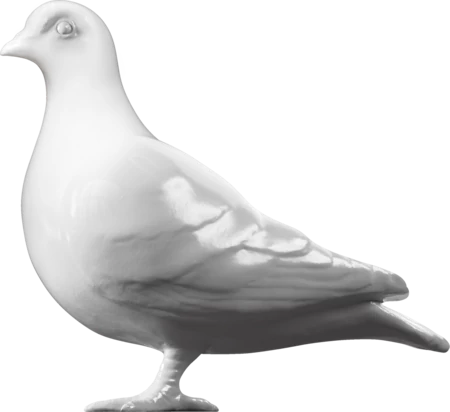Gift acceptance
This policy sets out the principles we follow when accepting donations or gifts.
London Museum depends on the acceptance of philanthropic support to fulfil its mission and we have a duty to maximise the resources available for that purpose. If we choose to refuse a donation, we must be able to demonstrate to the Charity Commission that we have acted in line with our objectives.
The museum’s position towards a contentious donor or donation is not the sum of the personal beliefs of our Governors, staff, or other stakeholders, it is determined by whether our mission and charitable objects are adversely affected by association with that donor or gift.
Three core principles and a set of key questions will guide decision-making about whether (or not) we choose to accept any given donation.
Core principles
- We will only accept philanthropic support that helps us to fulfil, and which can be utilised effectively in pursuit of, our mission and vision.
- We will only accept gifts that support and do not compromise the museum’s editorial, creative or academic freedom.
- We will be transparent about the sources and purposes of gifts received.
Key questions
When considering acceptance of a donation, particularly but not limited to gifts which may have a controversial dimension, we will consider and be guided by the following questions.
Does the gift:
- Arise in whole or in part from an activity that involved criminality, fraud, or the evasion of taxation?
- Require action that is illegal?
- Seriously damage the museum’s reputation?
- Create unacceptable conflicts of interest?
- Involve unlawful discrimination based upon race, religion, sex, age, national origin, colour, disability or upon any other basis prohibited by law?
- Require the museum to deviate from its normal hiring, promotion, and contracting procedures?
- Require unacceptable expenditure of additional museum resources?
- Limit the effectiveness of other work being undertaken by the museum?
- Harm the museum’s relationship with its members, other donors and sponsors, partners, friends or potential supporters?
- Contravene the museum’s policies that relate to anti-bribery and corruption?
When asking for or confirming receipt of donations, all museum staff and volunteer representatives must make the Director of Development aware if they are aware, or in any doubt, as to whether there are features of the gift which may conflict with the above core principles, or to which a key question answer is ‘yes’.
In such cases, it is the Director of Development’s responsibility to alert the Director as soon as possible after he/she has been made aware, certainly before any planned ‘ask’ is made, and to provide a due diligence report for the Director and the Chair of Governors. The Director and Chair may then commission further investigations before giving approval or – if doubt remains – referring the matter to the Audit and Risk Committee for final judgement.
In cases where a donor wishes to remain anonymous, anonymity will be respected provided the name of the donor is known to the Director of Development, Director and Chair of Governors, and the museum is satisfied, through the procedure set out, that any conflicts of interest are resolved before accepting the donation.
All due diligence and decision-making undertaken in assessing the acceptability or otherwise of a proposed donation will recognise the legal and reputational rights of potential donors. A clear distinction will be drawn between rumour or speculation and matters of confirmed fact or legal finding.
An annual report will be made to the Audit and Risk Committee as to any changes to this policy or its implementation, and a list of accepted and rejected gifts.
Draft process for the acceptance of gifts
Considering the principles above, all donations will be subject to basic gift acceptance procedures.
Written records must be kept for all donations. At a minimum, this must include the donor’s name, their contact details, the amount and date of the gift, and the specific allocation of the gift if there is one. All gifts above £10,000 must have a written Gift Agreement including the above.
Gift Agreements must be signed by someone other than the member of staff who has secured the gift. Approvals for Gift Agreements are determined by gift size, and approval should be based on due diligence checks conducted at the appropriate level. Appropriate details of the checks will be recorded on the fundraising database.
- Gifts under £100,000 – signed by the Director of Development
- Gifts £100,000-£1m – signed by the Director of the London Museum
- Gifts £1m+ – counter-signed by the Chair of the Board of Governors
If any concerns are raised about a potential gift, each approver may seek additional validation, both from the next level of approver as well as from the Audit and Risk Committee. The Audit and Risk Committee will act as the de facto Ethics Committee should the need arise and will make recommendations as to whether to accept a gift or not. Appropriate details of decisions will be recorded on the fundraising database.


